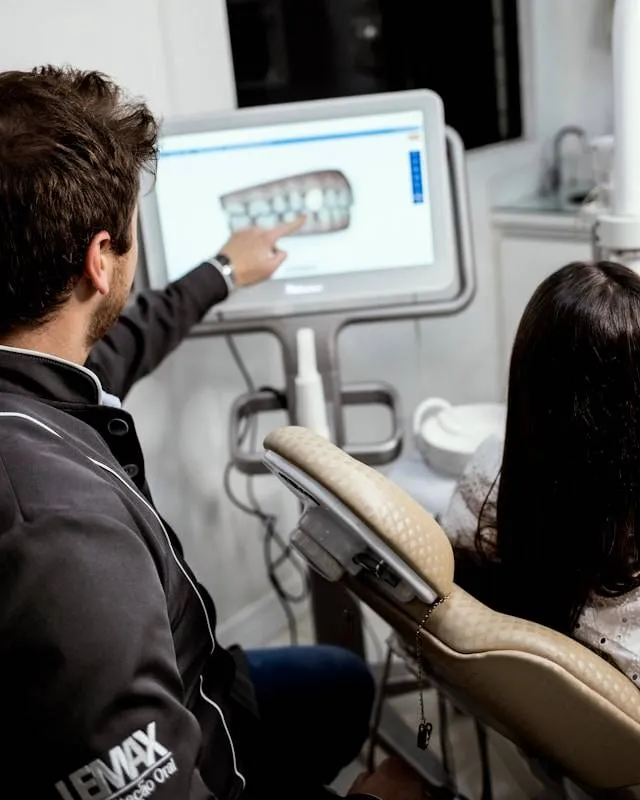1. Introduction to Implant
Implantation is a modern method of dental restoration, helping to replace lost teeth with artificial roots. Implants are small metal posts, usually made of titanium, that are implanted directly into the jawbone to replace lost tooth roots. After the implant is implanted and bonded to the bone, the doctor will attach a porcelain crown on top to form a complete tooth, with the same shape and function as a real tooth.
This method is increasingly popular because it brings many benefits to users. However, many people still wonder whether dental implants are really good or not. This article will help you understand more about this method.
2. Advantages of dental implants
Dental implants bring many benefits:
- Restore chewing function: Implants help you eat comfortably like real teeth.
- Improved aesthetics: Implant teeth have the same shape and color as real teeth.
- Protecting jawbone: Implants stimulate jawbone growth, preventing bone loss after tooth loss.
- No effect on adjacent teeth: No need to grind adjacent healthy teeth like when making a dental bridge.
- Easy to clean: Can be cared for and cleaned like real teeth.
- Long life: If well cared for, Implants can last a lifetime.
According to a study conducted at the Central Hospital of Odonto-Stomatology in Hanoi, the success rate of implant surgery can be up to 98%.
3. Implantation process
The implant procedure usually includes the following steps:
1. Examination and X-ray: The doctor checks the condition of the teeth, mouth and jawbone.
2. Treatment planning: Determine the appropriate type of implant and implant location.
3. Implant surgery: Place the implant into the lower jawbone under local anesthesia or sedation.
4. Bone healing time: About 3-6 months for the Implant to fuse tightly with the bone.
5. Attaching the porcelain crown: After the implant has stabilized, the doctor will attach the porcelain crown on top.
A study at Hai Phong Medical University Hospital showed that the average time to complete the implant process is about 4-6 months.
4. Who is a suitable candidate for Implant placement?
Implant is suitable for many subjects:
- People who have lost one or more teeth
- People with strong enough jaw bones
- People who do not want to wear removable dentures
- People who want a long-term tooth restoration solution
However, some cases may not be suitable:
- Children are in the stage of jaw bone development
- People with poorly controlled systemic diseases
- Heavy smoker
- Pregnant women
Your doctor will assess your general health and dental condition to decide whether an implant is appropriate.
5. Compare Implant with other methods
Compared with other tooth restoration methods, Implant has many advantages:
- Compared to removable dentures: Implants are firmly fixed, comfortable to chew and do not cause discomfort.
- Compared to dental bridges: Implants do not affect adjacent teeth, are more durable and easier to clean.
A study at the Central Hospital of Odonto-Stomatology in Hanoi showed that 95% of patients were satisfied with the results of dental implants, higher than 80% for dental bridges and 70% for removable dentures.
6. Implant cost
The cost of an implant can range from 15 to 40 million VND per tooth, depending on many factors:
- Type of Implant used
Number of teeth to be implanted
- Jaw bone condition
- Bone grafting needs (if needed)
- Doctor's experience
- Treatment location
Although the initial cost can be high, with its longevity and ability to preserve jawbone, dental implants are often considered a long-term investment in oral health.
7. Care after Implantation
To maintain the life of the Implant, proper care is needed:
- Clean teeth thoroughly every day
- Use a soft toothbrush and specialized dental floss
- Avoid chewing foods that are too hard.
- No smoking
- Regular dental check-ups every 6 months
A study at Can Tho University of Medicine and Pharmacy Hospital showed that patients who complied with post-transplant care had a 20% higher success rate than those who did not.
8. New advances in Implant technology
Implant technology is constantly improving:
- Improved Implant surface helps speed up bone healing
- Computer-guided implant technology
- Small diameter implants are suitable for cases of narrow jawbones.
- Flapless implant technique, reduces pain and recovery time
These advances help increase success rates and reduce treatment times for patients.
9. Common concerns about implants
Although dental implants are safe and effective, there are still some concerns:
- Pain: The implantation process is performed under anesthesia or sedation so it is painless. There may be some discomfort after surgery but it will gradually subside.
- Infection: The risk of infection is very low if postoperative care instructions are followed.
- Implant failure: The failure rate is very low (about 2-5%) and usually occurs in the early stages.
- High cost: Although the initial cost is high, this is a long-term and economical solution in the long run.
10. Conclusion: Is Implant really good?
After reviewing the advantages, procedures, and research results, it can be concluded that dental implants are a very good method for restoring missing teeth. They offer many functional and aesthetic benefits, have a high success rate, and can be used for a long time.
However, the decision to have an implant should be carefully considered, based on your health status, financial situation and the advice of your dentist. Not everyone is suitable for this method, and there are cases where other methods may be more suitable.
If you are considering dental implants, please consult with Sakura dentists for detailed advice and choose the most suitable solution for you. We hope you have a suitable choice to improve your oral health and beauty!




